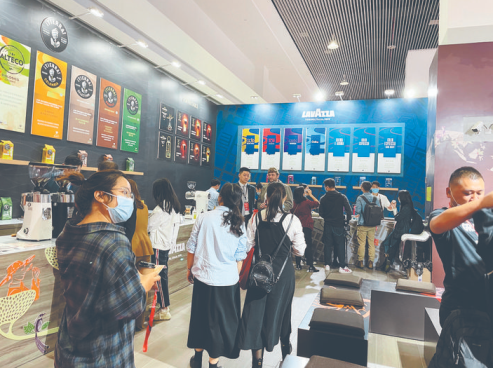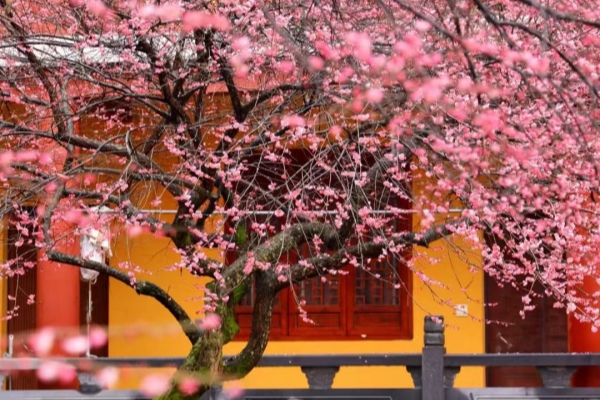Chinese county's rendezvous with coffee production

Visitors sample coffee from different countries at the first International Coffee Expo in Qingtian county. [Photo/lsnews.com.cn]
China
is known for its time-honored tea culture, but it's intriguing that in
this very country there is a county that wakes up to the aroma of coffee
every day.
Home to 570,000 people, Qingtian is a remote mountainous county located in the city of Lishui in east China's Zhejiang Province. Reportedly, locals consume 10,000 cups of coffee a day on average, with some 7,000 people engaged in jobs related to the coffee industry.
Intrigued by the coffee culture there, Yu Lianzhu decided to settle down in Qingtian. She opened her first cafe in 2012, three years after graduating from university. However, she soon realized that just fancy interiors are not enough to satisfy customers.
Qingtian is known for its large overseas Chinese population. Thus, the locals have high expectations when it comes to the taste of coffee.
To meet their demands, Yu spent a year learning coffee-making skills such as roasting coffee beans and dripping coffee in different countries.
After gaining the technical know-how, she opened her second cafe offering coffees with a better taste and at a lower price. The new kickstart brought success, as she opened a third cafe, and later went on to launch her own company.
In 2020, Yu's company launched a production line for coffee beans, achieving production and marketing integration. It produced 200 tonnes of coffee beans last year, with an annual output value of 50 million yuan (about 7.81 million U.S. dollars).
Yu is among a growing number of coffee entrepreneurs in Qingtian who have seen business opportunities owing to the county's love for coffee. To help them gain more exposure in domestic and overseas markets, a coffee association was established in June.
"While coffeehouses have sprung up all across the county in recent years, there's still a dearth of talented baristas and industry standards," said Zheng Xiaojian, secretary general of the local coffee association.
"The association offers suggestions to over 300 coffee enterprises on selecting raw materials and equipment, as well as choosing interior designs and managing staff," Zheng said, adding that it also offers training to people who work in the industry.
With the increase in the number of cafes in the county, local residents have become more and more enthusiastic about coffee, and the refreshing drink has become a part of people's lives.
Espying this trend, the local government has launched many cultural activities for coffee connoisseurs.
"We have opened a cultural exhibition center, where people can learn about coffee and the three stages in its evolution, experience coffee making and enjoy the taste of various coffee beans," said Jin Xukai, an official with the local culture and tourism department.
The second International Coffee Expo scheduled from Nov. 13 to 15 in Qingtian is expected to attract equipment manufacturers and coffee bean suppliers from over 20 countries.
In the meantime, a coffee-making competition has been planned, providing a platform for Chinese baristas to exchange ideas and learn from each other.
Zhejiang has been named as a demonstration zone for promoting common prosperity, reinforcing the county's determination to better integrate coffee into the production and life of local inhabitants.
"We encourage libraries, villages and scenic spots to install coffee makers and put on relevant decorations," said Jin, expressing hopes that citizens will enjoy the aroma of coffee during their leisure time such as reading or traveling.

 Lishui establishes intelligent biodiversity monitoring system
Lishui establishes intelligent biodiversity monitoring system New fungus species discovered in Qingyuan
New fungus species discovered in Qingyuan Lishui transforms weirs to aid fish migration
Lishui transforms weirs to aid fish migration